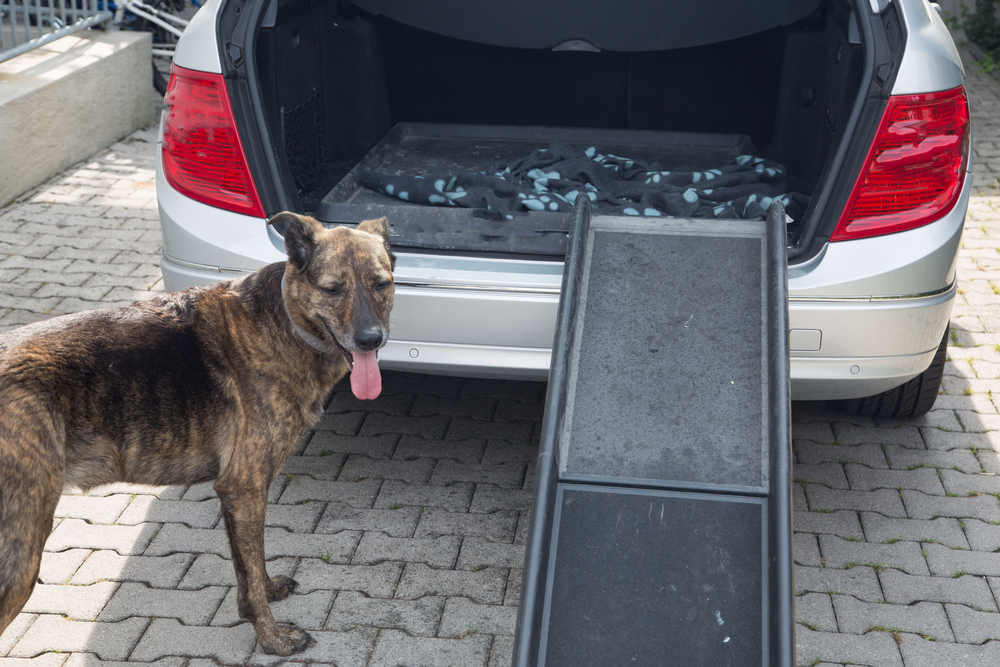Advances in veterinary medicine and better owner awareness are allowing pets to live longer, but this means they may face age-related issues. As your pet ages, they have different health needs than younger cats and dogs. Since November is Adopt a Senior Pet Month, our team at Acorn Animal Hospital answers some frequently asked questions about caring for your senior pet, to ensure they are receiving the best care possible.
Question: How do I know when my pet is considered geriatric?
Answer: Pets attain their senior citizenship status at different ages, depending on their species and breed.
- Dogs — In general, large-dog breeds age faster than small-dog breeds.
- Small breeds — Breeds such as Chihuahuas, shih tzus, and Pomeranians are considered geriatric at around 10 to 12 years of age.
- Medium breeds — Breeds such as Australian shepherds, border collies, and basset hounds are considered geriatric at around 8 to 9 years of age.
- Large and giant breeds — Breeds such as Doberman pinschers, boxers, and Great Danes are considered geriatric at around 6 to 7 years of age.
- Cats — The American Association of Feline Practitioners suggests the following age classification for cats:
- Mature cats — Cats are considered middle-aged or mature at 7 to 10 years of age.
- Senior cats — Cats are considered senior citizens at 11 to 14 years of age.
- Geriatric cats — Cats are considered geriatric at 15 years of age and older.
Q: How do I know if my senior pet is experiencing age-related health issues?
A: Senior pets, especially cats, are extremely good at hiding their health issues. The best way to ensure your pet isn’t affected by an age-related health issue is a regular evaluation by a veterinary professional. Senior pets should receive a wellness exam at least once every six months. We will perform a thorough physical exam to find issues such as cataracts, heart conditions, and abdominal masses, and diagnostics, including bloodwork, urinalysis, and fecal tests, to evaluate your pet’s health. These tests are crucial to catching disease processes in their early stages, when they can be managed to prolong your pet’s life and quality of life.
Q: Does my senior pet still need regular preventive care?
A: Yes. Senior pets should continue to receive vaccinations, and heartworm, flea, and tick preventives. As they age, your pet’s immune system may become compromised, and preventive care helps ensure they remain healthy. Your senior pet should also continue to receive regular dental cleanings. Poor dental health can cause your pet significant pain, and can result in lost teeth, or a fractured jaw. The bacteria that accumulate around their teeth and gums can also enter the bloodstream and damage other organs, such as the heart, kidneys, and liver.
Q: What should I feed my senior pet?
A: Many pets in the United States are overweight, and as pets age, they are at higher risk for obesity, which is linked to numerous serious health conditions, such as diabetes, cancer, high blood pressure, and arthritis. Keeping your pet at an ideal weight helps ensure they remain healthy as they get older. Each pet’s nutritional needs are unique, and our veterinary professionals can help you determine the best diet for your pet. The product will have a suggested serving label on the bag, but this should serve only as a starting point, with consideration also for your pet’s age, breed, neuter status, and activity level. Calorie calculators are available to help you ascertain your pet’s energy requirements.
Q: Should I be concerned if my senior pet is less active than usual?
A: Many pet owners disregard their senior pet’s lowered activity levels as a normal part of aging, but a health issue could be causing their decreased energy. Arthritis could be affecting your pet’s joints, causing pain and decreased mobility. Lethargy can be an early sign of several serious health conditions, including heart disease, kidney disease, and liver disease. Decreased activity is also an early sign in pets affected by cognitive dysfunction, which is similar to Alzheimer’s disease in humans. If you notice your pet slowing down, have a veterinary professional evaluate them, to ensure they aren’t suffering from a medical issue.
Q: How can I ensure my senior pet is comfortable at home?

A: As your pet ages, simple tasks may become more difficult, but you can take steps to make their environment easier to navigate.
- Food and water bowls — Elevate your pet’s food and water bowls, to ensure potential neck pain won’t prevent them from eating and drinking enough. Also, place their bowls in areas they can easily access.
- Litter boxes — Senior cats affected by arthritis may not be able to easily or comfortably get in and out of their litter box. A litter box with low sides can make this process easier.
- Beds and couches — Your pet may be affected by mobility issues that hinder them from jumping up on couches or beds. Providing ramps can help your pet access these areas, so they don’t injure themselves.
By ensuring your senior pet gets the care they need, you can help them live a long, happy life. If you have any concerns about your senior pet, contact our team at Acorn Animal Hospital, so we can return the spring to their step.
